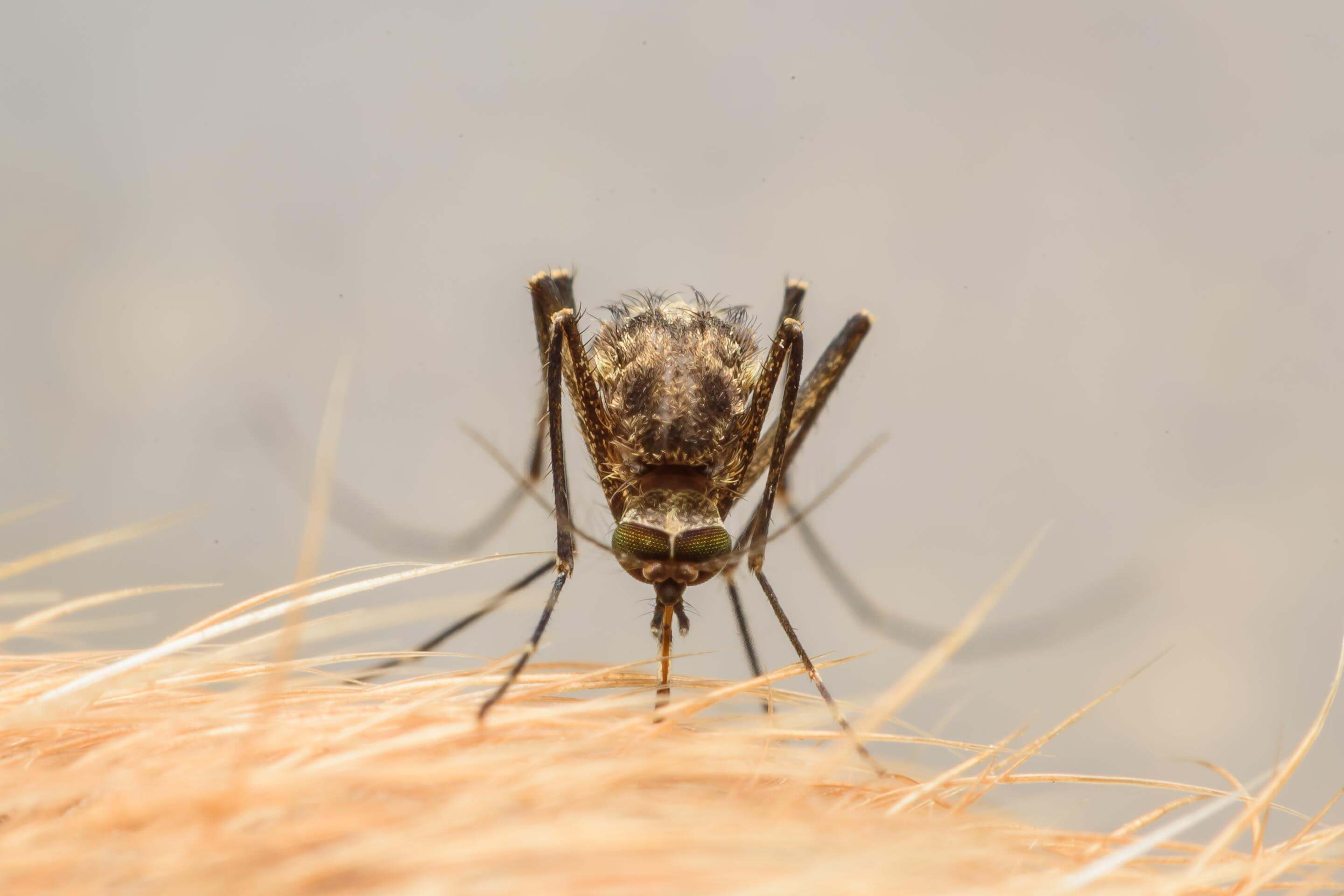Spring showers might bring May flowers, but all that rain makes a great breeding ground for mosquitoes. Three out of four life stages of the mosquito live in water, so they always seem to show up after a good rainfall. Not only are these insects irritating, leaving itchy bumps on their victims with each bite, but they can also transmit the potentially deadly heartworm disease to our pets.
What is heartworm disease?
Heartworm, a serious disease affecting dogs and cats, has been diagnosed in all 50 states. Unlike most other “worms” that our pets can contract, this worm is not passed through stool. When mature, these foot-long worms live in the heart, lungs, and associated blood vessels of infected animals, causing severe lung disease, heart failure, and damage to other organs.
How is heartworm disease transmitted?
Mosquitoes are notorious for spreading deadly diseases… For humans, think yellow fever, malaria, West Nile, and Zika, to name a few. For pets, think heartworm disease. Even indoor-only pets are susceptible, since it only takes one infected mosquito to transmit heartworm disease, and these nasty little creatures can easily get inside our homes.
Adult female heartworms produce immature worms, also known as microfilaria, that circulate in the bloodstream of infected animals. When a mosquito bites an infected animal, it picks up microfilaria, passing them along when it bites another animal. Once inside a new host, it takes approximately 6 months for the heartworm larvae to mature into adult heartworms, which resemble spaghetti noodles and can grow to 12 inches in length. Mature heartworms can live for 5 to 7 years in dogs and up to 2 or 3 years in cats.
Because dogs are natural hosts for heartworm disease, mature worms can reproduce inside them. Left untreated, a heartworm-positive dog could end up with hundreds of heartworms taking over his heart, lungs, and surrounding organs. Cats are not natural hosts, which means they will usually not have more than a few mature worms inside their bodies, and those worms will not reproduce, but they can still wreak havoc on a cat’s health.

What are the signs of heartworm disease?
Heartworm disease manifests a little differently in cats and dogs, and some animals don’t show signs until the disease is advanced, if they show any signs at all.
Dogs can exhibit:
- A mild cough
- Reluctance to exercise
- Fatigue after moderate activity
- Decreased appetite
- Weight loss
- A swollen, fluid-filled belly due to heart failure
Cats can display:
- Coughing
- Wheezing
- Vomiting
- Difficulty breathing
- Increased heart rate
- Weight loss
- Sudden collapse or death
What do I need to know about heartworm testing?
Heartworm is a serious, progressive disease. Because there are few, if any, early signs of illness when a dog or cat is infected with heartworms, detecting their presence with an annual heartworm test is important, helping to catch the disease early and preventing significant organ damage. Even pets on regular heartworm preventive medications should be tested for heartworm annually because medications can be spit out, rubbed off, or forgotten.
How is heartworm disease treated?
Yearly testing and year-round heartworm prevention is cheap insurance compared to the cost of treating this potentially deadly disease. Heartworm preventive manufacturers offer product guarantees and will pay for heartworm treatment if your veterinarian can show you purchased monthly heartworm prevention without lapsing and your pet had a yearly negative heartworm test.
Currently, there is a medication that treats heartworms in dogs, but there is no treatment available for cats. Because cats are not ideal hosts, infections can sometimes resolve on their own, although they often need supportive care from a veterinarian to manage symptoms, and the disease can still have lifelong consequences on a cat’s health.
Treatment for most affected dogs consists of a multi-step plan that must be strictly followed to kill all stages of heartworms:
- Severe exercise restriction — Limit excitement, no walks other than to go briefly outside
- Begin heartworm preventive medication to kill immature heartworms and prevent new infections from developing
- Antibiotics may be given to weaken the adult heartworms
- A series of injections of a medication that kills the adult worms
- Follow-up exams to determine the dog’s response to treatment
- In severe cases, emergency surgery may be needed to save the dog’s life
Even after treatment, dogs should remain on a prescribed heartworm preventive for life.
With the safe and affordable heartworm preventives available today, no pet should ever have to endure this dreaded disease. Call Neighborhood Vets at 913-912-2319 to discuss the best heartworm preventive product for your pet.

